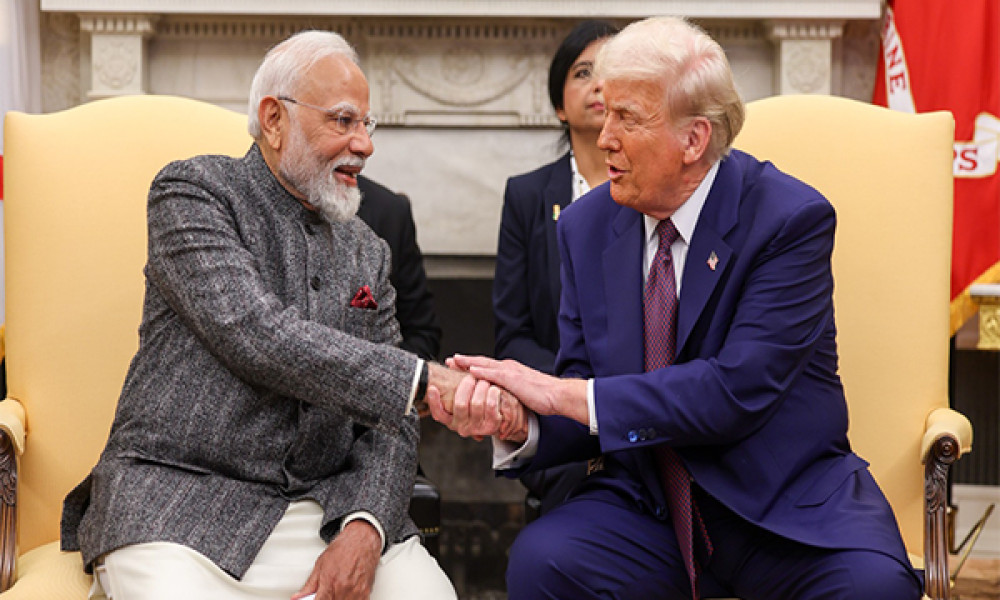The recent signals from trade talks between the United States and India have generated optimism in global markets. With both US President Donald Trump and Prime Minister Narendra Modi emphasizing progress, investors are finding fresh reasons to stay positive. Hopes of a deal being finalized by November have only strengthened this sentiment.
Market watchers are closely tracking these developments, and the response has been encouraging. Analyst Chakri Lokapriya has highlighted that IT, pharma, and auto sectors are well-positioned to benefit. According to him, the willingness of Trump and Modi to renew cooperation is a positive sign that markets are already factoring in.
Export-driven industries appear to be the first in line for growth. Experts believe sectors such as pharmaceuticals, IT services, and auto ancillaries could see momentum picking up quickly. Many of these industries had been waiting for clarity, and the trade discussions are beginning to offer that.
In addition to global trade signals, domestic policy steps like GST cuts are playing a supportive role. Consumption-oriented industries, particularly in automobiles and tyres, are expected to benefit from the tax relief. These twin drivers—international trade progress and local reforms—are helping set a strong foundation for growth.
Investor confidence is evident in the way the market is reacting. Companies in the IT sector, for instance, have seen renewed interest. Infosys’ buyback announcement further lifted sentiment, reflecting investor belief in the sector’s future strength.
For a while, the IT industry had struggled due to uncertainty in US policies, including restrictions on visas. If trade talks advance positively, such issues could see smoother resolutions. This would restore confidence in outsourcing demand and open opportunities for Indian IT firms.
At the same time, expectations of a US rate cut and ongoing European trade agreements are adding to the optimism. Together, these moves suggest that global IT spending may rise. Indian IT service providers stand out as major beneficiaries of this trend.
Pharma companies are also positioned to gain from better trade terms. With India’s pharmaceutical exports playing a significant role in global healthcare supply chains, any easing in trade restrictions can boost earnings. The sector has been waiting for such a catalyst to accelerate growth.
Auto manufacturers and related industries form another part of the story. GST reductions are expected to trickle down to auto companies and their suppliers. More affordable products could encourage higher consumer demand, lifting sales in the months ahead.
Tyre makers are particularly well placed within this space. Brands like Ceat, JK Tyres, and Apollo Tyres could benefit from greater volumes. Ceat, with its strong presence in the two-wheeler segment, may see the most immediate results from rising demand.
The synergy between trade optimism and domestic reforms is making analysts hopeful about a broad-based recovery. Auto ancillaries are projected to gain not just from local sales but also from improved export opportunities if talks continue positively. This mix of factors is adding strength to investor sentiment.
Overall, the message from experts is that markets are finding a strong footing. Even though final agreements are still pending, the groundwork for upgrades in earnings across sectors is being prepared. The friendly approach from both Trump and Modi has raised confidence in the possibility of a successful trade deal.
For investors, the current moment offers reasons to remain watchful but optimistic. With signs pointing toward progress on multiple fronts, the Indian market landscape appears set for meaningful shifts. IT, pharma, autos, and tyres stand out as sectors ready to ride the wave of renewed momentum.
The coming weeks will be crucial as trade negotiations move closer to possible finalization. Markets will continue to respond to every signal, but the outlook remains more constructive than it has been in recent months. Analysts suggest this is a phase where long-term strategies could benefit from the alignment of global and domestic factors.
Even as investors weigh risks, the overall environment is turning favorable. The blend of international cooperation and local policy support is offering a balance that had been missing. If current optimism translates into concrete agreements, the Indian market could enter a new chapter of growth.

